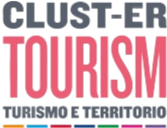CONTEXT
The tourism value chain represents one of the most complex industrial ecosystems, underlining several interconnections with other regional growth sectors (accessibility and transport, culture, climate change, energy, agriculture, urban development), and being the sectoral reference framework mainly dominated by small and medium-sized enterprises (SMEs) whose activity generates employment and wealth for territorial development.
The tourism sector, which accounts for 15% of our region’s GDP, was one of those most affected by the spread of the Covid 19 pandemic, particularly in peripheral areas that suffered most from its effects due to this remoteness.
The new European challenges aimed at achieving the goals of reducing the ecological footprint and the objectives of the European Green Deal, in particular climate neutrality, by 2050, are pushing the sector towards the digital and green transition (twin transition), socio-economic and environmental sustainability, the creation of quality jobs, further education and training for operators and support for SMEs.
CLUSTER OBJECTIVES
- activate a dialogue on innovation issues for the sector, composed of universities, schools, tourism operators, enterprises and institutional stakeholders
- expand and qualify the regional tourism offer (also thanks to research and data analysis actions that favour reorientation, the strengthening of web/social communication and the modernisation -qualification and redevelopment- of infrastructures, both tangible and intangible)
- support the creation of a brand for regional tourism based on sustainability (green products increasingly oriented towards the concept of wellbeing), capable of integrating all the specific territorial features: cultural, natural, landscape, architectural, sports, wine and food, bathing and wellness heritage
- foster the empowerment of tourism operators
- support the activation of internationalisation processes, also through the offer of integrated tourist products (also at interregional level)
- support the genesis of strategic projects, capable of supporting the evolution of the sector
- promote processes of capitalisation/transfer of innovative practices and results between different geographical areas and of integration of the funds made available for the sector

